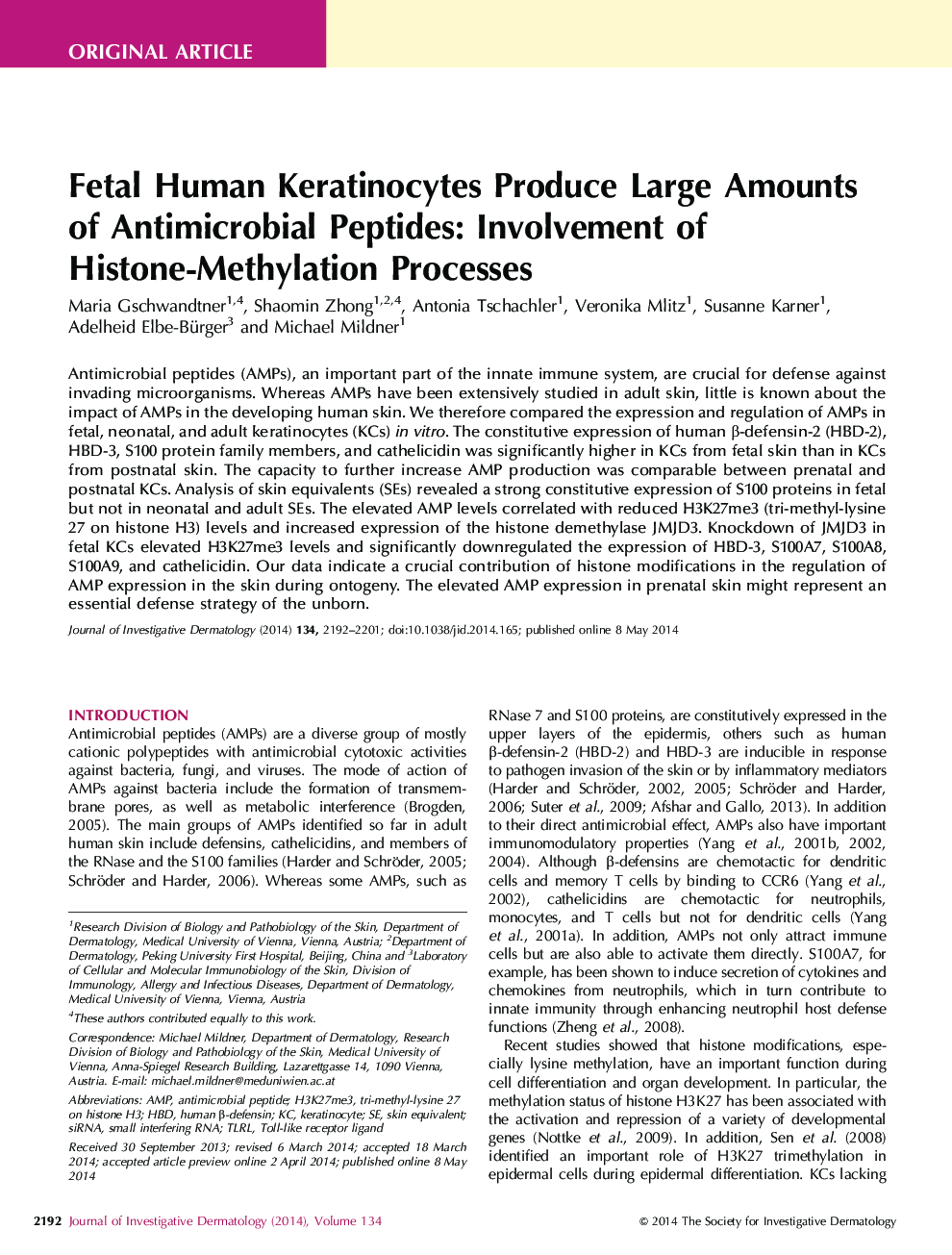| کد مقاله | کد نشریه | سال انتشار | مقاله انگلیسی | نسخه تمام متن |
|---|---|---|---|---|
| 6075828 | 1203507 | 2014 | 10 صفحه PDF | دانلود رایگان |
عنوان انگلیسی مقاله ISI
Fetal Human Keratinocytes Produce Large Amounts of Antimicrobial Peptides: Involvement of Histone-Methylation Processes
ترجمه فارسی عنوان
کراتینوسیت های انسانی جنین تولید مقدار زیادی از پپتید های ضد میکروبی: درگیر شدن از پروتئین های هیستون-متیل شدن
دانلود مقاله + سفارش ترجمه
دانلود مقاله ISI انگلیسی
رایگان برای ایرانیان
موضوعات مرتبط
علوم پزشکی و سلامت
پزشکی و دندانپزشکی
امراض پوستی
چکیده انگلیسی
Antimicrobial peptides (AMPs), an important part of the innate immune system, are crucial for defense against invading microorganisms. Whereas AMPs have been extensively studied in adult skin, little is known about the impact of AMPs in the developing human skin. We therefore compared the expression and regulation of AMPs in fetal, neonatal, and adult keratinocytes (KCs) in vitro. The constitutive expression of human β-defensin-2 (HBD-2), HBD-3, S100 protein family members, and cathelicidin was significantly higher in KCs from fetal skin than in KCs from postnatal skin. The capacity to further increase AMP production was comparable between prenatal and postnatal KCs. Analysis of skin equivalents (SEs) revealed a strong constitutive expression of S100 proteins in fetal but not in neonatal and adult SEs. The elevated AMP levels correlated with reduced H3K27me3 (tri-methyl-lysine 27 on histone H3) levels and increased expression of the histone demethylase JMJD3. Knockdown of JMJD3 in fetal KCs elevated H3K27me3 levels and significantly downregulated the expression of HBD-3, S100A7, S100A8, S100A9, and cathelicidin. Our data indicate a crucial contribution of histone modifications in the regulation of AMP expression in the skin during ontogeny. The elevated AMP expression in prenatal skin might represent an essential defense strategy of the unborn.
ناشر
Database: Elsevier - ScienceDirect (ساینس دایرکت)
Journal: Journal of Investigative Dermatology - Volume 134, Issue 8, August 2014, Pages 2192-2201
Journal: Journal of Investigative Dermatology - Volume 134, Issue 8, August 2014, Pages 2192-2201
نویسندگان
Maria Gschwandtner, Shaomin Zhong, Antonia Tschachler, Veronika Mlitz, Susanne Karner, Adelheid Elbe-Bürger, Michael Mildner,
